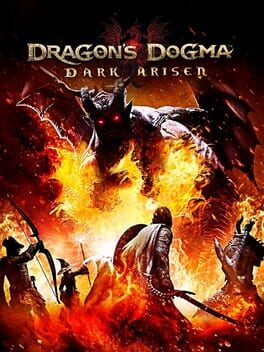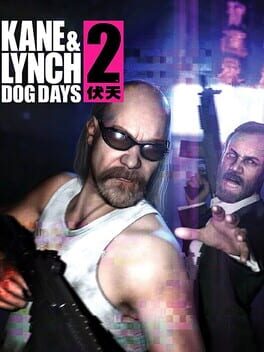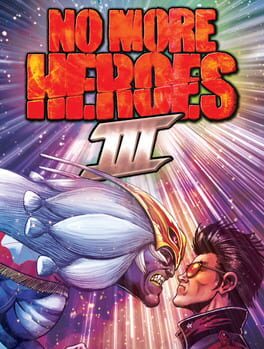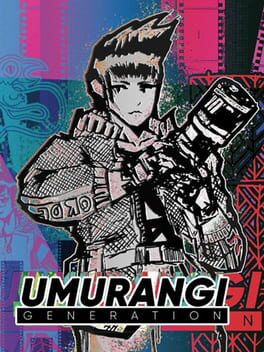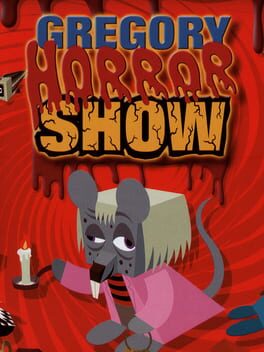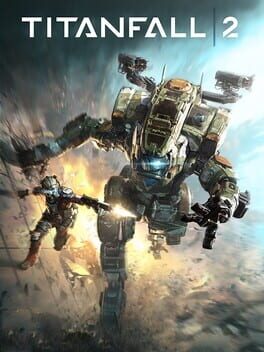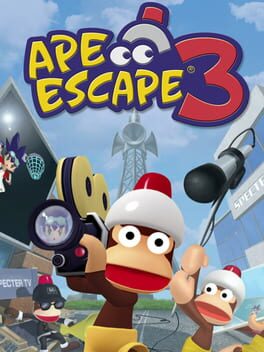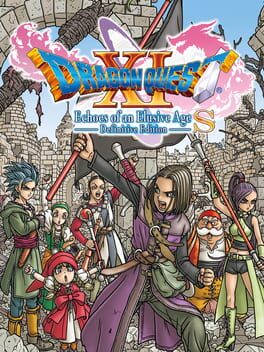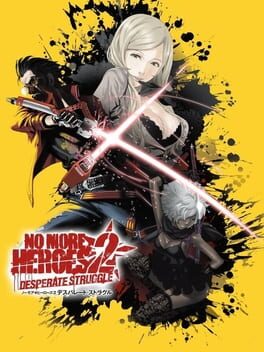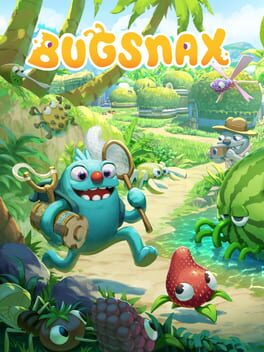oxygengraffiti
Blowing someone's brains out with a close-range headshot in Kane & Lynch 2 made me considerably more uncomfortable than any gore-obsessed shooter ever has. I know for a fact that the model's head is perfectly intact and they've just slapped on an obligatory blood splatter decal atop whatever unsuspecting flesh caught the blow, but pixelating the carnage as the body slumps to the floor made me feel as if I'd just seen some low-resolution footage of something real, something that had been edited just enough to make it onto some unsavoury websites visited only by the morbidly curious and the sociopathic.
Following Lynch around the streets of Shanghai with the shakiest handheld camera known to man; complete with the visual artifacting, poor directional audio and overwhelming ambience that comes with it, is an absolutely horrid experience replicated with intent by few others in the medium.
You could argue that Kane & Lynch 2 is a bad game, hell you'd probably be right, but I'll be damned if it isn't something truly special in a way very few other games are.
It's basically an art-house version of Max Payne 3.
Following Lynch around the streets of Shanghai with the shakiest handheld camera known to man; complete with the visual artifacting, poor directional audio and overwhelming ambience that comes with it, is an absolutely horrid experience replicated with intent by few others in the medium.
You could argue that Kane & Lynch 2 is a bad game, hell you'd probably be right, but I'll be damned if it isn't something truly special in a way very few other games are.
It's basically an art-house version of Max Payne 3.
2020
Astro's Playroom is to the PS5 what Wii Sports was to the Wii; an absolutely impeccable title that distills everything you need to know about the hardware down to it's bare Video Game essentials.
The DualSense really does seem to have the potential to make the average game incredibly special if it's features are used right, because this literal tech demo had me smiling the entire time.
The DualSense really does seem to have the potential to make the average game incredibly special if it's features are used right, because this literal tech demo had me smiling the entire time.
2021
This review contains spoilers
No More Heroes III is a game I initially thought incredibly highly of, mostly to deflect from my disappointment that a franchise that has played an instrumental part in my personal development didn't leave with a bang, but a whimper.
Had Suda51 not been so open in recent interviews about how Grasshopper's access to the IP is fleeting and that this will likely be the last time we see the cast for the better part of a decade, the egregious yet charmingly self aware sequel-bait ending might have been a little more palatable.
There's also the unfortunate case of No More Heroes III's fairly mediocre soundtrack. Rize drummer Nobuaki Kaneko is at the helm for most of the combat tracks in the game, though this mostly amounts to a loud wall of drums and little else of note. The game's best track, Start The Game, comes from Grasshopper and No More Heroes numbered-entry veteran Jun Fukuda and is heard literally once during one of the first by-the-books, mechanic-checklist tutorials. It's incredible.
That being said there's admittedly quite a lot to like here, most notably a massively overhauled combat system that makes good use of a few of it's 2019 predecessors more interesting mechanics: the Tension Gauge and Death Glove. Whilst not as expansive as Travis Strikes Again's offerings, these four abilities do a lot to make this the most fun a No More Heroes game has been to play since the franchises inception. That doesn't mean it's the best though, as I've always felt that the first game has thematically flawless gameplay; of course the otaku, trained on anime and pro-wrestling tapes, would live out his fantasised boss battles with all the weight of samurai duels of old.
That's about the extent of III's homages to Travis Strikes Again however, because Dr. Juvenile is reduced to a piece of plot armour who's shilling publisher Marvelous' DAEMON X MACHINA as the credits roll for the first of multiple times and newfound hardcore fan-favourite Badman is beaten to a bloody pulp shortly before the Rank #9 fight.
Poor writing isn't relegated to just Dr. Juvenile either, as not a single member of III's fairly sizeable female cast is given even a shred of depth. Though in all fairness most of the men, outside of Travis and FU, aren't treated much better either.
This might be due in part to how III is structured, just like the Netflix inspired pre-chapter credits would lead you to believe, No More Heroes III is explicitly episodic.
Normally this would be fine as all of the games prior were technically chapter-based, even if they weren't obvious about it, but this presentation makes each and every inevitable trademark Goichi Suda Narrative Fakeout that much more of a kick in the teeth when they miss their mark and rob the player of the one opportunity per ranking they had to be graced with even a nugget of story content.
Naïve as it may be to have expected it, No More Heroes III feels a lot less like an earnest follow-up to Travis Strikes Again and more akin to a No More Heroes 2.5.
Had Suda51 not been so open in recent interviews about how Grasshopper's access to the IP is fleeting and that this will likely be the last time we see the cast for the better part of a decade, the egregious yet charmingly self aware sequel-bait ending might have been a little more palatable.
There's also the unfortunate case of No More Heroes III's fairly mediocre soundtrack. Rize drummer Nobuaki Kaneko is at the helm for most of the combat tracks in the game, though this mostly amounts to a loud wall of drums and little else of note. The game's best track, Start The Game, comes from Grasshopper and No More Heroes numbered-entry veteran Jun Fukuda and is heard literally once during one of the first by-the-books, mechanic-checklist tutorials. It's incredible.
That being said there's admittedly quite a lot to like here, most notably a massively overhauled combat system that makes good use of a few of it's 2019 predecessors more interesting mechanics: the Tension Gauge and Death Glove. Whilst not as expansive as Travis Strikes Again's offerings, these four abilities do a lot to make this the most fun a No More Heroes game has been to play since the franchises inception. That doesn't mean it's the best though, as I've always felt that the first game has thematically flawless gameplay; of course the otaku, trained on anime and pro-wrestling tapes, would live out his fantasised boss battles with all the weight of samurai duels of old.
That's about the extent of III's homages to Travis Strikes Again however, because Dr. Juvenile is reduced to a piece of plot armour who's shilling publisher Marvelous' DAEMON X MACHINA as the credits roll for the first of multiple times and newfound hardcore fan-favourite Badman is beaten to a bloody pulp shortly before the Rank #9 fight.
Poor writing isn't relegated to just Dr. Juvenile either, as not a single member of III's fairly sizeable female cast is given even a shred of depth. Though in all fairness most of the men, outside of Travis and FU, aren't treated much better either.
This might be due in part to how III is structured, just like the Netflix inspired pre-chapter credits would lead you to believe, No More Heroes III is explicitly episodic.
Normally this would be fine as all of the games prior were technically chapter-based, even if they weren't obvious about it, but this presentation makes each and every inevitable trademark Goichi Suda Narrative Fakeout that much more of a kick in the teeth when they miss their mark and rob the player of the one opportunity per ranking they had to be graced with even a nugget of story content.
Naïve as it may be to have expected it, No More Heroes III feels a lot less like an earnest follow-up to Travis Strikes Again and more akin to a No More Heroes 2.5.
2020
2003
2016
2005
This review contains spoilers
TL;DR: The third act ruins what was looking to be a near-perfect game.
For once, a Dragon Quest game ended on a bittersweet note. The world's been saved, but at what cost? Your hometown is a pile of rubble that now acts as a literal Last Bastion for the people that once lived there and, most importantly, a vital member of your party gave their life to save those she cared about the most.
Instead of leaving on that and letting the player roam the broken world in the post-game, looking for answers about their ancestry and the role they play in the world or testing their mettle against ancient evils that are even stronger than the second act's final boss, you discover that there has been a method to travel through time the entire game and immediately bounce to an alternate timeline before the ending events of the first act.
And with that, all the interesting character development from the second act is gone.
Without his sacrifice, Erik doesn't lose his memories.
He doesn't open up to the party about his younger sister Mia and the tragic events that unfurled prior to the events of the main game. If you decide to visit their hideaway during the third act, the Luminary just magically removes the Midas-esque curse that was placed on her and the two happily reunite.
Without the death of Veronica, Serena has no reason to ritualistically cut her hair and grow as a person, bonding with her sister's soul and unlocking an expanded skillset that makes her an essential party member when tackling any challenge the second act threw at you.
Without witnessing Jasper's betrayal and the fall of Yggdrasil, Hendrik isn't lauded as the Hero and the protector of the Last Bastion. He has no reason to have the Luminary prove himself in the defence of his hometown and pledge himself as their sworn protector once he comes to terms with his wrongdoings and the power that the Luminary holds.
Outside of the narrative qualms I had with the third act, I fucking loved DQXI. I felt like a kid again, embarking on a comfy adventure in a beautiful world with my little ragtag group of friends.
Oh and the music sucks, with little to no variety in regards to tracks and compositions that you'd expect to come from Sugiyama's understudy and not the man himself.
An easy all-time-great had the post-game/third act been different.
For once, a Dragon Quest game ended on a bittersweet note. The world's been saved, but at what cost? Your hometown is a pile of rubble that now acts as a literal Last Bastion for the people that once lived there and, most importantly, a vital member of your party gave their life to save those she cared about the most.
Instead of leaving on that and letting the player roam the broken world in the post-game, looking for answers about their ancestry and the role they play in the world or testing their mettle against ancient evils that are even stronger than the second act's final boss, you discover that there has been a method to travel through time the entire game and immediately bounce to an alternate timeline before the ending events of the first act.
And with that, all the interesting character development from the second act is gone.
Without his sacrifice, Erik doesn't lose his memories.
He doesn't open up to the party about his younger sister Mia and the tragic events that unfurled prior to the events of the main game. If you decide to visit their hideaway during the third act, the Luminary just magically removes the Midas-esque curse that was placed on her and the two happily reunite.
Without the death of Veronica, Serena has no reason to ritualistically cut her hair and grow as a person, bonding with her sister's soul and unlocking an expanded skillset that makes her an essential party member when tackling any challenge the second act threw at you.
Without witnessing Jasper's betrayal and the fall of Yggdrasil, Hendrik isn't lauded as the Hero and the protector of the Last Bastion. He has no reason to have the Luminary prove himself in the defence of his hometown and pledge himself as their sworn protector once he comes to terms with his wrongdoings and the power that the Luminary holds.
Outside of the narrative qualms I had with the third act, I fucking loved DQXI. I felt like a kid again, embarking on a comfy adventure in a beautiful world with my little ragtag group of friends.
Oh and the music sucks, with little to no variety in regards to tracks and compositions that you'd expect to come from Sugiyama's understudy and not the man himself.
An easy all-time-great had the post-game/third act been different.
The epitome of missing the point.
Travis' character is pitifully written, where the original clearly paints him as a pathetic loser that thinks he's cool, the sequel ditches this in exchange for an explicit player fantasy where he canonically gets the girl and sheds some blood in the name of revenge for a character that really wasn't given much depth prior.
The gameplay is barely an improvement to the first, as every boss fight devolves into walking away and baiting them to attack, because if you play hyper-aggressively they'll dodge ad infinitum.
At the very least, the music still bangs, but I can't really give it much outstanding praise outside of that.
Travis' character is pitifully written, where the original clearly paints him as a pathetic loser that thinks he's cool, the sequel ditches this in exchange for an explicit player fantasy where he canonically gets the girl and sheds some blood in the name of revenge for a character that really wasn't given much depth prior.
The gameplay is barely an improvement to the first, as every boss fight devolves into walking away and baiting them to attack, because if you play hyper-aggressively they'll dodge ad infinitum.
At the very least, the music still bangs, but I can't really give it much outstanding praise outside of that.
2007
I wish I could put my thoughts on No More Heroes into words as eloquently as I have the previous Kill The Past titles that I've played and reviewed this year, but I can't.
Not for lack of trying mind you, but because No More Heroes represents something truly special to me. Outside of some other titles that I appreciate with the blessing of sweet hindsight, No More Heroes was one of the first games I cared about on a level higher than just "this is fun".
I loved the characters, how they talked to each other, and their designs.
I loved the gameplay, despite all it's flaws.
I loved the music, especially the leitmotif throughout most non-boss tracks.
And I still do, for those reasons and so many more.
Not for lack of trying mind you, but because No More Heroes represents something truly special to me. Outside of some other titles that I appreciate with the blessing of sweet hindsight, No More Heroes was one of the first games I cared about on a level higher than just "this is fun".
I loved the characters, how they talked to each other, and their designs.
I loved the gameplay, despite all it's flaws.
I loved the music, especially the leitmotif throughout most non-boss tracks.
And I still do, for those reasons and so many more.
2020
At the time of its international release, the critical reception of Flower, Sun, and Rain was probably justified; the core gameplay loop isn't traditionally engaging and as a standalone work it's story makes little to no sense.
But in 2020, where fans have realised that numerous titles Suda51 worked on are actually thematically and narratively interconnected, an unofficial series of games dubbed "Kill The Past", it's clear that Flower, Sun, and Rain is actually the sequel to Grasshopper Manufactures inaugural outing: The Silver Case.
Going in with The Silver Case fresh in my mind, I can easily say that engrossing, entertaining and esoteric writing continues to make me enjoy games that I would have likely never played otherwise due to the genres they inhabit (visual novels and walking sims respectively).
Not to mention the design choice to technically give the player all the answers to every single puzzle in the game in the form of The Lospass, an in-game guidebook that Sumio Mondo (the protagonist) is given during the second chapter, is actually the most ingenious move I've ever seen.
It's good. Play it.
But in 2020, where fans have realised that numerous titles Suda51 worked on are actually thematically and narratively interconnected, an unofficial series of games dubbed "Kill The Past", it's clear that Flower, Sun, and Rain is actually the sequel to Grasshopper Manufactures inaugural outing: The Silver Case.
Going in with The Silver Case fresh in my mind, I can easily say that engrossing, entertaining and esoteric writing continues to make me enjoy games that I would have likely never played otherwise due to the genres they inhabit (visual novels and walking sims respectively).
Not to mention the design choice to technically give the player all the answers to every single puzzle in the game in the form of The Lospass, an in-game guidebook that Sumio Mondo (the protagonist) is given during the second chapter, is actually the most ingenious move I've ever seen.
It's good. Play it.
